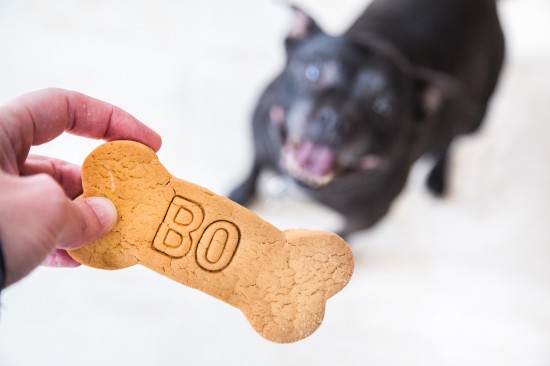A constipated dog is unable to empty his bowels by normal means and can experience uncomfortable side effects. The condition is fairly easy to diagnose as the dog will likely take longer than normal to defecate and most will show signs of straining or difficulty achieving results. Their stools are commonly small, dry, hard and round. If a dog's bowels have not moved for two days or more, they are generally considered to be constipated.
Though a constipated dog is not usually a sign of serious problems, the issue should definitely be addressed in order to avoid more serious complications. Failure of a dog to empty the bowels causes toxins to build up in the body and can result in loss of appetite, sluggishness, abdominal pain, bloating and even difficulty walking. Constipation that is accompanied by vomiting or other severe symptoms could be a sign of serious problems such as intestinal blockage, parasites or internal issues.
There are many possible causes of a constipated dog and most can be avoided by a healthy, active lifestyle with conscientious health care. Among the most common causes are water deficiencies, insufficient exercise and the lack of a healthy diet high in fiber. Water aids in the elimination process by hydrating the body and providing the ability to flush the intestinal tract. Daily exercise in the form of a medium paced walk, a brisk jog or time spent romping and playing fetch will help to stimulate and regulate the bowels. High quality dog foods provide the proper nutrients and fiber necessary to maintain a healthy diet, whereas cheaper brands may contribute to slow moving bowels.
While correcting and stabilizing the issues of a constipated dog, it might be helpful to add small amounts of cooked pumpkin, sweet potato, or green beans to the dog's food for quick and natural results. Freshly cooked and canned are both acceptable, just be sure there are no additives, seasonings or sugars. Use only 1-2 teaspoons per meal for small dogs, 1-2 tablespoons for medium and 2-5 tablespoons for large dogs. Maintaining a healthy diet with plenty of fresh water and exercise should keep your dog regular and happy.

 Seven Warning Signs Of Illness To Watch Out For In Young Puppies
Seven Warning Sig
Seven Warning Signs Of Illness To Watch Out For In Young Puppies
Seven Warning Sig
 Budgie Buying And Care For Beginners
Budgie Buying And
Budgie Buying And Care For Beginners
Budgie Buying And
 Does Your Dog Beg For Snacks ? It Could Be Why Theyre Piling On The Pounds
Does Your Dog Beg
Does Your Dog Beg For Snacks ? It Could Be Why Theyre Piling On The Pounds
Does Your Dog Beg
 Digestive Disorders In Reptiles
Digestive Disorde
Digestive Disorders In Reptiles
Digestive Disorde
 4 Great Home-made Tasty Doggy Treats
4 Great Home-made
4 Great Home-made Tasty Doggy Treats
4 Great Home-made